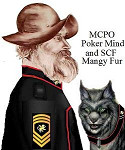What Heinlein was really doing was updating an ancient practice known as "Timocracy", where people were enfranchised according to certain criteria (generally property ownership in the past).
The reasoning behind this, in the Athenian Eklassia, the Res Publica Roma, the Serenìsima Repùblica Vèneta or as envisioned by the Founders of the American Republic was to ensure that the people who voted were the people who actually had an interest in the outcome of the vote ("skin in the game", in modern terms).
Aristotle and most ancient philosophers were not fans of Democracy as practiced, since it was generally seen to evolve into a form of mob rule, easily swayed by demagogues and voting to enrich some at the expense of others. The idea that the poor would use their votes to overwhelm the rich and take their property, or to divert funds from public works and public order to "Bread and Circuses" wasn't a theoretical concern, they had seen it in action.
This is actually some great knowledge, I never put the two together until you did it for me.
Also, if we take civil service into modern terms it doesn't have to be military service. Many countries who have forced conscription at the age of adulthood give a none military alternative. Would Heinlein agree with that interpretation?
After a day of thought I think my idea that there is a difference between public service and civil service is different might matter. To me a public service is that I give my free time to volunteer, say to a food bank, which is a worthy cause in my eyes, the main point is that it is of my own free will. Civil service means I give my time to the governing body, and follow the mantra of "ours is not to question why."










 and, Mangy Fur the Smart Alick Spacecat.
and, Mangy Fur the Smart Alick Spacecat.